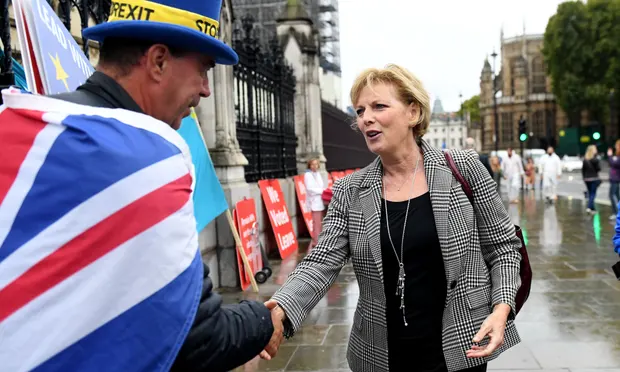Anna Soubry, the former Conservative business minister, has announced she will be voting for Labour at the next general election.
The former MP, now a criminal barrister, said on social media that she will be voting for Keir Starmer. On Wednesday, she wrote on X, formerly Twitter: “I will be voting #Labour.
“With @Keir_Starmer as leader they have the values and competence to deliver the change our country desperately needs.”
Soubry also posted a cutting of a newspaper article on Starmer’s speech on Tuesday at the Labour party conference in Liverpool.
She quit the Tories in February 2019 in protest at the then-prime minister Theresa May’s handling of Brexit and helped found the Independent Group for Change, later Change UK, along with a handful of other MPs, including seven from Labour.
The MP for Broxtowe was leader of the party but in December 2019 it announced it was disbanding after failing to win any seats at the last general election.
The barrister served as minister for small business, industry and enterprise from May 2015 until July 2016. Previously she was minister of state at the Ministry of Defence for a year.
Soubry’s announcement comes after Mark Carney, the former governor of the Bank of England, endorsed the shadow chancellor, Rachel Reeves, on Monday in a video message played to the annual conference.
Carney, who ran the Bank of England from 2013 to 2020, said: “Rachel Reeves is a serious economist. She began her career at the Bank of England, so she understands the big picture.
“But, crucially she understands the economics of work, of place and family. And, look, it is beyond time we put her energy and ideas into action.”
The Canadian’s support came after Reeves made a series of pledges in her conference speech including reducing government waste to save an estimated £4bn, an inquiry into the failure to build HS2 and a planned crackdown on the use of private planes by ministers.
